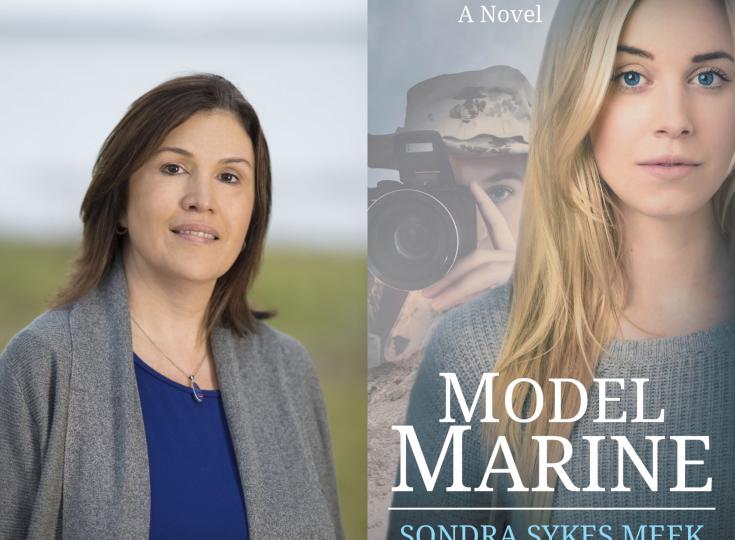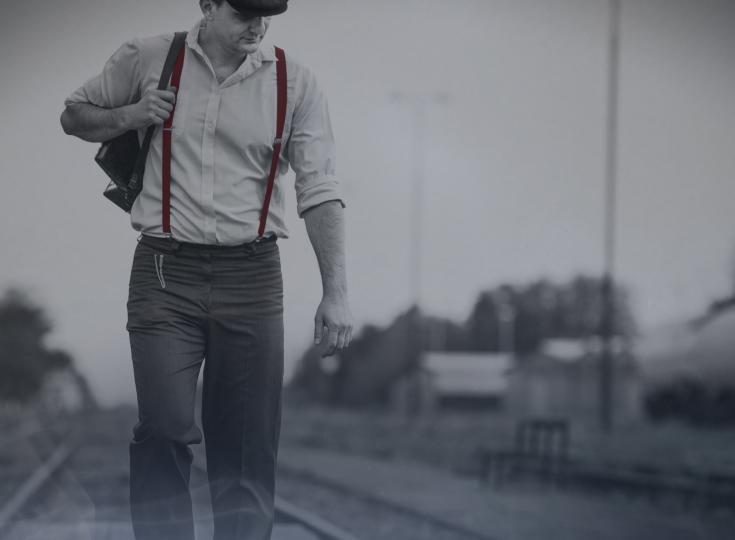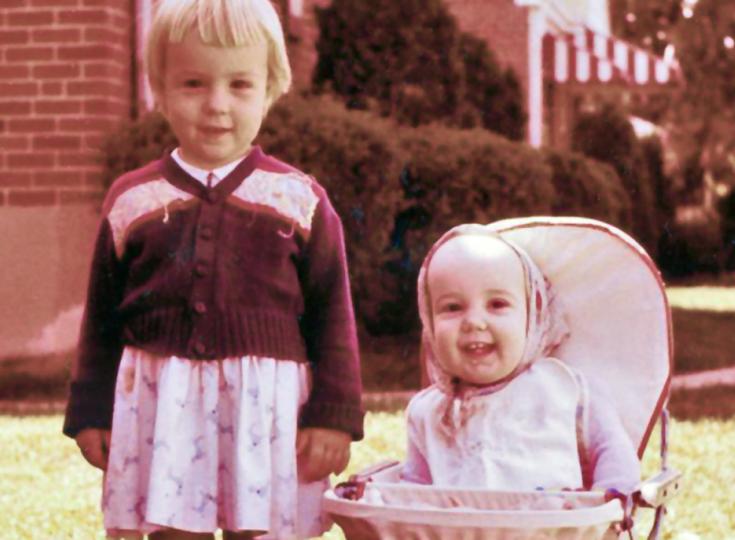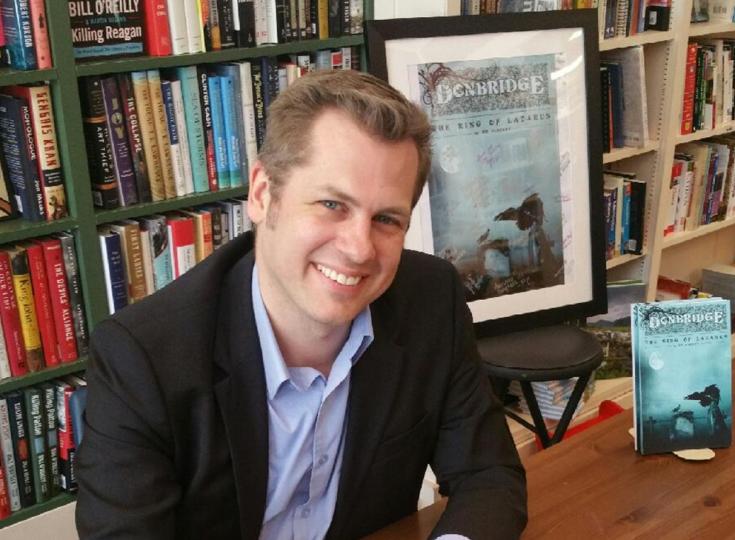Sondra Sykes Meek - Writing about Women in the Marine Corps

Sondra Sykes Meek is a mother of two, a retired Marine Corps Master Sergeant, and a Project Manager in the Defense Industry. Her latest book, Model Marine: A Novel is the Award-Winner in the Military category of the 2018 American Fiction Awards and won the Gold Medal in the Fiction – Literary category of the 2018 Readers Favorite International Book Award Contest (just announced this weekend!). As our Author of the Day, Meek talks about her own experiences as a Marine, why she felt driven to write this book and reveals whether or not it was coincidental that her book got published exactly 100 years after the first woman joined the U.S. Marine Corps.
Please give us a short introduction to what Model Marine is about.
For readers who have read the book description, they may initially realize that Model Marine is about an idealistic young lady named Molly who wants to escape the beauty queen identity, and become a stronger, more capable version of herself. Readers may see the transformation through her high school and boot camp flashbacks. They may begin to understand the methods of the Marine Corps, such as demanding immediate obedience to orders, pushing the body past perceived physical limits, requiring activities intended to diminish fear, and instilling muscle memory through repetition. But by the end of the book, hopefully readers realize that a subtle shift has occurred: Molly is no longer the center of attention. The camera lens is no longer on her; she is behind the lens—literally and figuratively.
The novel is about more than just a girl going into combat. It subtly addresses stereotypes in an honest, objective manner. It captures the combat experience through the lens of multiple Marine perspectives, as well as the through the eyes of their family members and friends, which also shows how vantage point impacts perception. It gives readers a glimpse at the struggles veterans endure after Traumatic Brain Injury and PTSD, and it provides civilians unfamiliar with the military an authentic, visually descriptive glimpse into the Marine Corps way of life
What inspired you to write about a model who becomes a U.S. Marine?
I wanted to write about the female Marine experience long before I actually started writing about it in 2010. It is a unique experience that isn’t very well known and there have been few depictions of women Marines in entertainment and fiction. When I joined in 1990, there weren’t many “pretty” women Marines, so I received a lot of attention when I was young. I wanted to infuse some of those earlier feelings (“fish out of water,” always trying to prove myself) with the main character, so I needed her to be pretty. I made her a model because it fit the plotline and themes of the fictional story I wanted to tell, in which the word model has multiple meanings.
Why do you think the stereotype about models being "just a pretty face" needs to be challenged?
I think most stereotypes need to be challenged. We are a society that judges people by how they look on the outside, instead of taking the time to find out what is on the inside. I would like to be a conduit for changing that.
You were in the Marine Corps yourself. How much of your own experiences have you incorporated in Model Marine?
The plot is 100% fiction. Even though I was on active duty for twenty years, I had to do a lot of research on jobs that I did not do, such as Combat Camera and Mortuary Affairs. In fact, none of the Marine Corps characters do the job I did as a Marine. My experiences were incorporated into the characters’ attitudes and perceptions. Some of the characters are loosely based off Marines I served with, but their actions in this story are all fiction. I wrote this story with purpose, and telling my personal story wasn’t part of that. I believe the story and setting are more realistic because of my experiences as a Marine.
Model Marine has been very well received so far and is a National Indie Excellence Awards finalist. What has surprised you most about readers' reactions to the book?
My biggest surprise was how many men have given me positive feedback on the story. I went into this thinking women are my target audience, so when men praised the story, it really got my attention.
Your book focuses more on the human elements and interactions than actual battles. Why did you take this approach?
Human interactions are the driving force of life and fiction, in my opinion. No matter what happens in our lives, it is our relationships that have the most impact on our decisions, perceptions, and feelings about our environment. The Marine Corps way of life is built upon the precept that we are one team with common goals. People from all ethnicities and backgrounds are indoctrinated into a culture that makes them family. For the majority of Marines, it doesn’t matter what years you served, what battles you fought, what color your skin is, or what gender you are, when you meet another Marine, you have an instant bond. It is the human interactions within this culture that make the Marine Corps special.
2018 Marks 100 years since the first woman joined the U.S. Marine Corps. Is it coincidental that you published your book now, or was this planned?
I wish I could say it was planned! I really hate admitting that it is coincidental, but I have to tell the truth here. I operate as much on intuition as logic. I wrote the initial version of Model Marine from 2010 – 2012. It was my thesis for my MFA in Creative Writing. But, I got caught up in my day job and pursued work-related certifications for several years and the story sat on a shelf until May 2017. I honestly just woke up one morning with a burning desire to finish it and publish it. I spent the rest of the year working weekends, mornings and holidays writing, and then reading about publishing and marketing. When I was ready to publish and realized that the year coincided with our 100-year anniversary, I was ecstatic!
Readers report that Model Marine was very hard to put down. How did you pull this off?
I think the way I wrote the story contributed to this. It’s not written chronologically. There is a forward moving storyline, but the beginning of each chapter begins with a flashback that gives the reader insight into the characters. It switches vantage point from one character to the next and they are each experiencing their own struggles, so the reader is left with only a piece of their story, until the next (or a following) chapter. Also, once the initial combat scene unfolds, everything happens quickly after that.
What do you hope readers will take away from this book?
When I decided to write this book, I knew I didn’t want to glamorize or demonize the Marine Corps. There is good and bad in every organization and I just wanted to be honest about the culture of the Corps. I love being a Marine, but that doesn’t mean the Corps, or everyone in it is perfect. I hope readers gain insight into the culture, and appreciation for the sacrifices of veterans and their families. I hope my readers recognize that vantage point impacts our perception of reality—in this story, as well as our daily lives. I hope that by the way the story is written, readers gain an understanding of the struggles of living with a Traumatic Brain Injury.
Do you have any interesting writing habits? Favorite writing spot, best time of the day for you to write, something specific you do for inspiration?
I usually write sitting cross-legged on my (made) bed, with my diffuser filling the room with my favorite essential oils. I need a quiet, spa-like environment to be creative.
Are you a planner or a pantser? (Do you work from notes or do you write "by the seat of your pants?")
I am both! It depends on when the inspiration hits me. If it hits me when I don’t have time to write, I make notes in my phone. If it hits me when I’m in front of my computer, I write by the seat of my pants.
Molly's story is told in flashes - why did you take this approach?
I took this approach because how I wrote the story is a part of the story. Molly is a Combat Camera Marine, so she uses a camera to capture images. My intent was to do the same with her story. It is told with scenes: images, memories, or dreams of her past. Also, she has experienced a Traumatic Brain Injury, so her memory has holes in it. Her friend, Sergeant Brian Price, shows her pictures of her past to try and help her remember. When her memories start coming back to her, she sees them in flashes.
What are you working on right now?
Honestly, all I have time for right now is marketing Model Marine. I have done some writing and note-taking for another book, but it’s so slim, it’s not worthy of sharing. My day job (as a Cybersecurity Project Manager) gets most of my time. I hope to begin writing in earnest again this Fall.
Where can our readers discover more of your work or interact with you?
The best way to interact with me is through Instagram and Facebook @ModelMarine. I also have a website: https://www.sondrasykesmeek.com, and readers are welcome to email me at [email protected]. I will use those channels to announce more of my work.








